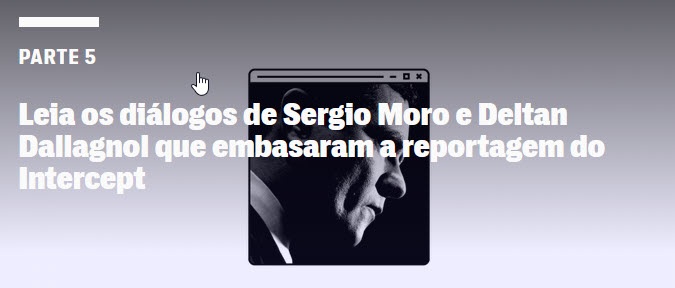The last few days have seen President Jair Bolsonaro begin to show his true colours as an authoritarian populist. The ex-army captain sacked four generals seen as moderates, strengthening instead the influence of Bolsonaro’s very own Rasputin, the extreme right-wing guru Olavo de Carvalho, and reinforcing his social media image of a strongman and crusader in a holy war against left-wing ideology and cultural Marxism.
The generals given their marching orders are cabinet minister Carlos Alberto dos Santos Cruz – apparently because he insisted on plain speaking and refused to take orders from the president’s sons. After his sacking, Santos Cruz accused Bolsonaro’s government of wasting time with ‘bobagens’ – nonsense – instead of giving priority to relevant national questions. General Franklinberg de Freitas, head of Funai, was sacked because he refused to put the interests of the landowners – who he described as ‘salivating with hatred for the Indians’, above those of the indigenous population. General Juarez Cunha, head of the Post Office, was sacked because he did not want it privatized, and General Floriano Peixoto, another cabinet member, had to go because he was close to Santos Cruz – but was then given the Post Office job as a consolation prize. The one general left standing, Augusto Heleno, is such a toady that when Bolsonaro, in a show of machismo, tried to perform push-ups at a ceremony with athletes, the 71-year-old followed suit and nearly collapsed.
In addition to sacking the generals, Bolsonaro forced Joaquim Levy, president of the BNDES (national development bank) to resign, by openly declaring he wanted him gone – he had committed the sin of appointing an official who used to work for PT governments – as of course did Levy himself.
A national treasure
Next, Bolsonaro declared Justice Minister Sergio Moro to be a ‘national treasure’, after leaked phone conversations showed him to have been a far from impartial judge at Lula’s trial, conspiring with the public prosecutors who were accusing Lula of corruption to obtain evidence, to stage manage leaks, and to shield FHC (former president Fernando Henrique Cardoso) from exposure, because he was on their side.
Bolsonaro says ‘Sergio Moro is a national treasure (patrimônio nacional)’. Newsreel also shows Bolsonaro with military recruits, doing press-ups (see above). Video: RedeTV, 19 June 2019
Finally the president has turned on congress because it is refusing to rubberstamp his bills. Speaking at a military barracks in Santa Maria he said ‘we need, more than a parliament, the people on our side, so we can impose a policy of peace and happiness for all.’
L’état c’est moi
Two days later Bolsonaro rejected a congressional decision to transfer Funai from the Ministry of Agriculture, whither he moved it in January, back to the ambit of the Ministry of Justice, where it has traditionally been located, saying, ‘The man who makes the decisions on demarcation is me,’ sounding, according to one commentator, like absolute monarch King Louis XIV of France. Bolsonaro added, ‘Do we want to continue maintaining Indians as prisoners in their reserves as though they were prehistoric creatures?’ – thus revealing his total ignorance about today’s young Indians, many of whom now have university degrees. If anyone is looking for cavemen, the Planalto (presidential palace in Brasilia) would be a good place to start.
While ruralistas remain in charge of land questions in the Agriculture Ministry, Bolsonaro’s earlier declaration that ‘not one centimetre of land will be demarcated as indigenous land’ is sure to be respected. The more than 150 indigenous territories waiting to be recognised, will continue waiting, while their unresolved status is a magnet for land invasion.
Bolsonaro has accused congress of wanting to turn him into the Queen of England, (The Queen must be turning on her throne) while they seize power. More tuned into the public’s rejection of the pensions bill, congress has amended Bolsonaro’s bill to remove the more controversial parts. It will probably also reject his attempt to loosen restrictions on guns, to abolish fines for parents who don’t use child car seats (which had led to a proven fall in children killed in road accidents) to remove speed radars from highways (which have reduced accidents), and to ban prosecution of military and police forces and prison guards who kill suspects (such a ban would be understood as a licence to kill).
Bolsonaro justifies lifting existing restrictions on gun possession by what he referred to as ‘good citizens’ saying, ‘I defend the arming of individuals so that governments are not tempted to take absolute power’, as though handing out guns would somehow stop coups d’état. Some commentators see this as the opposite: the arming of militias, some of whom have proven links to the Bolsonaro family, to defend possible coups or authoritarian movements by pro-Bolsonaro factions.
‘Leakwash’
Not content with flexing his muscles in these matters, Bolsonaro decided to show his appreciation for Justice Minister Sergio Moro, the subject of revelations by journalist Glenn Greenwald on the site The Intercept. A huge trove of conversations regarding the trial of Lula, exchanged on the Telegram app between Moro, when federal judge in Curitiba, and Dalton Dallagnol, one of the prosecutors of the Lava Jato investigation, were handed over to Greenwald by an anonymous source, apparently a Deep Throat within the prosecutors’ department.

Moro began by claiming the messages showed nothing irregular, then changed his tune and tried to disqualify them as the result of illegal hacks, then said they were probably fake. The President’s son, Flavio Bolsonaro, conjured up a fantastical conspiracy involving Russian and Chinese billionaires and attempts to bring down the government. But Folha de S.Paulo has gone into partnership with The Intercept to publish the messages, a testimony to their authenticity.
Video: My News, 24 June 2019
Vazajato (Leakwash) as it’s been dubbed, reveals Moro’s flagrant lack of impartiality when judging the case of Lula’s alleged penthouse apartment. This has led to calls for the conviction to be annulled, and also for the judge to be suspended from his Ministerial job while an investigation is carried out. Bolsonaro instead invited him to a soccer match, awarded him a medal, and declared he was a ‘national treasure’. Meanwhile Greenwald and his family have suffered threats to their lives. In a serious country, said columnist Ricardo Noblat, Lula would be freed, and Moro investigated. ’A judge can ask for investigations, but he cannot act in partnership with the prosecution or the defence when he is judging a case.’
While caveman Bolsonaro continues unapologetically homophobic – he called exiled ex-deputy Jean Wyllys a menina (girl) – two events showed just how far out of step the Brazilian president is with much of the rest of the country: in Brasilia the STF (state supreme court) decided that homophobia is a racist crime and in São Paulo an estimated three million took to the streets in the biggest Gay Parade ever. Among the drag queens and trans people were groups of employees from some of the largest multinationals. An executive explained that diversity is good for creativity.

